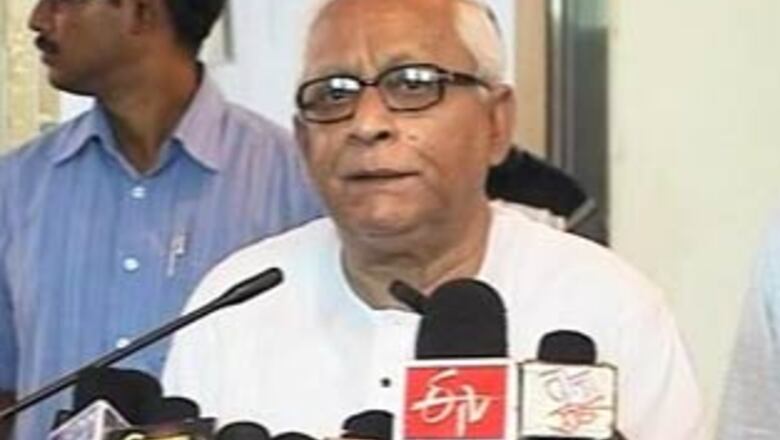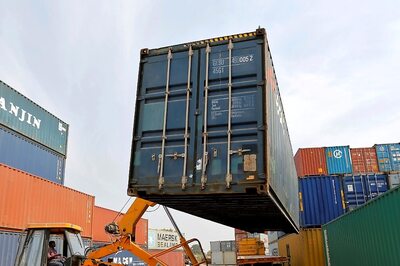
views
Kolkata: West Bengal Chief Minister Buddhadeb Bhattacharjee on Tuesday admitted that the Central government's decision to ban the Communist Party of India-Maoists applies within the state too, but asserted that the state will decide how to enforce it.
"This act is applicable in the whole country. Thus, it is applicable in West Bengal also," Bhattacharjee told reporters after a cabinet meeting.
"It is up to us to decide how far we can go, whom to arrest... this is our business. That we will decide," he said.
Union Home Minister P Chidambaram notified the ban under the Unlawful Activities (Prevention) Act on Monday. "It (CPI-Maoist) was always a terror organisation and today an ambiguity has been removed that it is a terror organisation," he said.
Bhattacharjee said the Central Act, passed in 1967 and amended from time to time, provides for the states to take actions against 34 organisations.
"In the Act it is categorically written which are the steps the government can take, the punishments and other things. We just cannot say no to this Act," said Bhattacharjee.
But, he said, there was no need for the state to come out with a new legislation as a follow-up of the central ban.
Asked if the central law or the laws in force in the state will apply to anyone arrested under the act, he replied: "That's for the state government to decide".
Bhattacharjee advocated a mix of tough administrative action, development initiatives and political steps to tackle the Maoists, who have forced the state government to send central and state security forces to Lalgarh, about 200 km from here, to re-establish the writ of the state.
The Left radicals torched police camps, set ablaze offices of the ruling Communist party of India-Marxists (CPI-M) and drove out the civil administration to establish a virtual "free zone" in the enclave of West Midnapore district.
Bhattacharjee conceded that there was need for more development work, but said "under-development is not the sole cause for terrorist activities".
He reiterated that the administration has to take tough steps to stop the Maoist activities, but said "the administration alone can't solve these type of problems".
Lalgarh area faced irrigation problems, and it was the government's duty to look into facilities like health, education and roads, he said.
"We have done lots of work in these areas. But still we can't ignore this. It is important to improve the living standards of the people over here," he said.
Apart from ensuring socio-political development, there was a need to organise political rallies to isolate the Maoists, he added.
The Maoists have been active in three backward districts - Purulia, West Midnapore and Bankura - in the western part of the state.




















Comments
0 comment